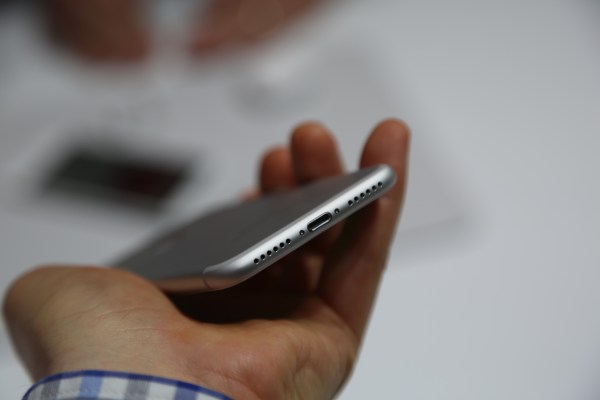Well goodbye then, iPhone first weekend sales metric. You had a good innings, as the British like to say, but the days of Cupertino putting a figure on how many iPhones it has managed to flog in the first few days of sales are done. Let’s say they’re (Tim) Cooked.
Apple announced the forthcoming iPhone 7 and iPhone 7 Plus yesterday, revealing two new iPhones without a 3.5mm headphone jack but with some light new design elements, as well as water and dust resistance; beefed up storage and battery life; a dual-lens rear camera; a reworked home button; stereo speakers; and the customary CPU upgrade.
Pre-orders for the two new iPhones start on Friday, with store availability from September 16. But, unlike in previous new iPhone release cycles, come Monday Apple won’t be saying how many handsets it’s shifted.
The company tells Reuters it is ending the traditional first weekend glimpse of iPhone sales because there is no point in releasing a figure that merely measures its (in)ability to fulfill demand. Although of course it would say that.
An Apple spokeswoman told the news agency: “As we have expanded our distribution through carriers and resellers to hundreds of thousands of locations around the world, we are now at a point where we know before taking the first customer pre-order that we will sell out of iPhone 7. These initial sales will be governed by supply, not demand, and we have decided that it is no longer a representative metric for our investors and customers.”
Now there are two schools of thought here — one of which is that Apple is explicitly promising a “sell out” and thus the iPhone 7 is a sewn-up, in-the-bag home run. And, in a perfect world where Apple’s supply chain had limitless on-demand capacity, it could shift more iPhones than it can in the real world, where even Cook’s supply chain expertise can only stretch manufacturing capacity so far. So why should Apple report a smaller number of iPhone sales than demand for new iPhones exists?
The other school of thought is that Apple is cloaking traditional first weekend iPhone sales because it’s rather less confident about its controversial decision to remove the 3.5mm headphone jack than Phil Schiller made out on stage yesterday. So less #Courage, more #Contingency.
The new iPhones also don’t represent a big design overhaul over last year’s models (or indeed the year before) — which might also discourage iOS users from upgrading. In saturated smartphone markets skipping an upgrade cycle or two might not seem such a big deal when this year’s iPhones look much the same as 2014’s models.
Add to that Cupertino of course remains massively scrutinized so any perceived blip in early iPhone 7 sales figures could rebound painfully on its bottom line. So — eyeing shareholder value — why take the risk of revealing sales figures when you don’t have to? Just be sure to get that message out early, i.e. ahead of pre-orders, rather than once orders have started flowing and/or the world’s media is expecting you to drop an impressive set of digits.
#Control.
Which just leaves the sales guesstimates…
Speculating on Apple’s decision not to release first weekend sales for the iPhone 7, analyst Ben Bajarin tweets that he’s expecting “roughly flat” sales figures — in the region of 10 million units…
Although last year’s iPhone 6s upgrade racked a bumper 13 million in first weekend sales for Apple so 10M iPhone 7 units would represent a bit of a drop-off.
For the record, here’s a list of iPhone first weekend sales figures from all prior years:
